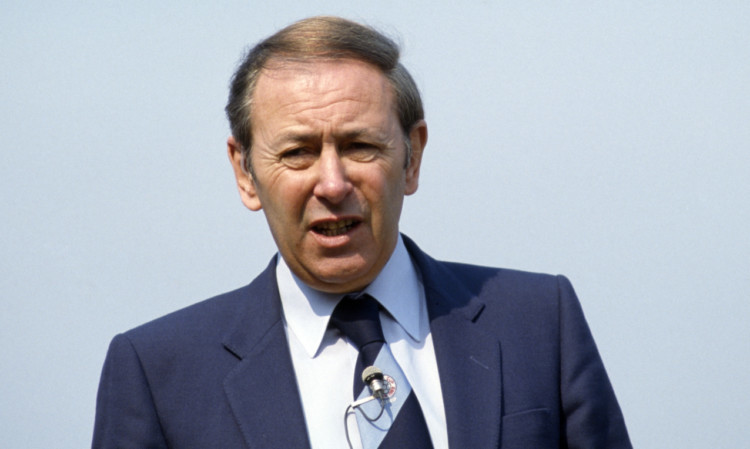Veteran commentator David Coleman, the BBC’s voice of sport for 30 years until his retirement in 2000, has died at the age of 87.
He first appeared on air for the BBC in 1954, and went on to cover 11 Olympic Games, from Rome in 1960 to Sydney 2000, and six football World Cups.
Coleman presented some of the BBC’s leading sports programmes, including Grandstand and Sportsnight, and was the host of Question of Sport for 18 years.
Coleman played a central role in making British sports television among the best in the world. His excited, high-pitched commentaries made him a favourite among viewers but also a target for impersonators.
He once commented that his Spitting Image puppet was “the only one which is better looking than the real thing”.
But the father-of-six added: “I think I could have improved upon the voice.”
The presenter became as famous for his on-air “Colemanballs” gaffes as for his brilliant commentaries.
One gaffe which haunted him was calling hole-in-the heart footballer Asa Hartford “a whole-hearted player”.
Another was his comment: “Forest are having a bad run they’ve lost six matches without winning.”
But his professionalism nnever faltered. During the terrible summer day in 1972 when terrorists invaded the Olympic Village in Munich, he reported with graphic and sensitive skill.
Coleman started his career in journalism in newspapers before becoming a freelance radio reporter in 1953. He made his first national TV appearance on May 6 1954 and joined the BBC in Birmingham in 1958.
A year later he was asked to present the new Grandstand programme and become staff commentator for outside broadcasts, the only one then in television.
A county class athlete and keen footballer, he specialised in reporting both but saw himself as primarily an all-round sports journalist.
In the years that followed, he covered everything from Come Dancing to royal weddings.
In the late 1970s he fell out with the BBC, suing over alleged breach of contract. But it was soon settled amicably out of court and he was back behind the corporation’s microphones.
One of his most successful ventures was as host of the BBC’s Question of Sport. He became a household name, and his hyper-enthusiastic commentary style became the subject of much mimicry.
He was born in Alderley Edge, Cheshire, on April 26 1926.
As a local paper reporter, the young Coleman went to cover a Stockport County junior football game, was roped in to play because they were short, and found himself signed up.
He saw war service in the Royal Signals, and then worked on the army newspaper the Union Jack.
Demobbed in 1947, he edited a local paper in Cheshire while running in his spare time, winning the Manchester Mile in 1949.
He joined the BBC in Manchester as a radio reporter, running five miles to the office and then changing into a suit.
He was awarded an OBE in 1993 and later a special accolade in the Royal Television Society presentations, when the judges called him “the pivotal voice of BBC sport for over five decades”.
He is survived by wife Barbara and six children.
